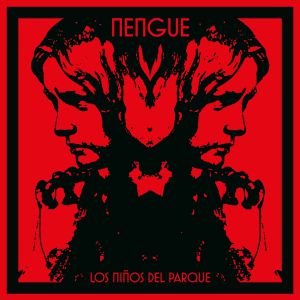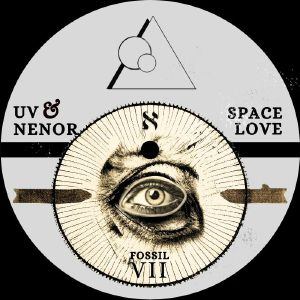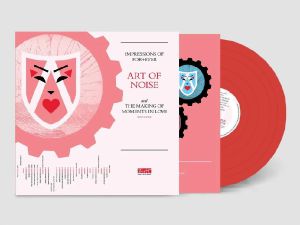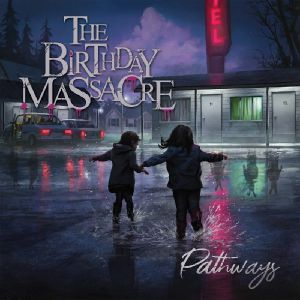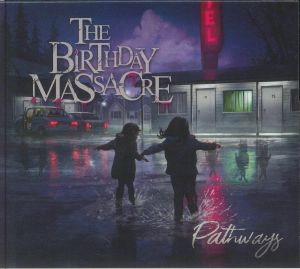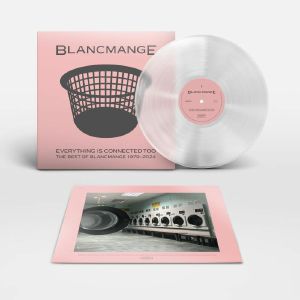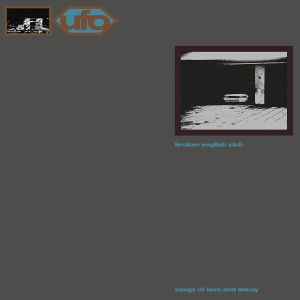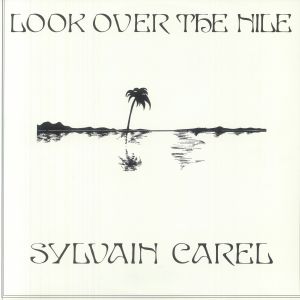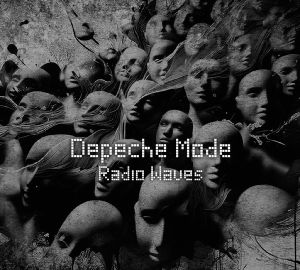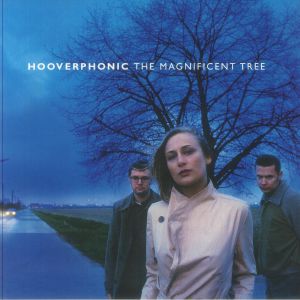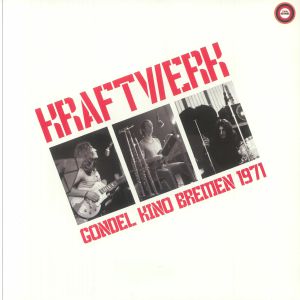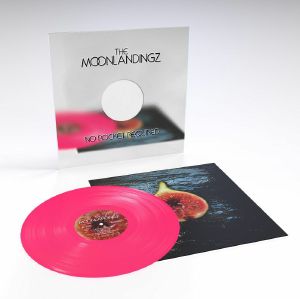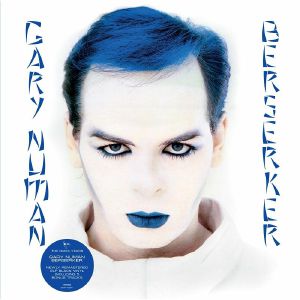Filter
Stock
Artist
Featured
Release Title
Price
Tags
New releases last eight weeks: Coldwave/Synth
Coldwave/Synth vinyl released in the last four weeks
Items 1 to 14 of 14 on page 1 of 1
Singles
Review: Platform 23 platform the Italian 80s avant-garde and anarcho music scene on a fresh 12" compilation, kicking things off with an unreleased cover, by the band Nengue, of Los NiNos Del Parque's electro-pop-wave track 'African Beat'. Amid the political unrest of the Anni di Piombo (Years of Lead) - which saw the autonomist Marxist movement, and backdrops of government-mafiosi collusion, labour strife, and terrorist splinter group formations - underground artists found themselves transducing the radical energy of the time into rapidfire releases, put out through DIY networks. Rome's Nengue embodied this, blending industrial, jazz, and futurist influences. Initially, the release aimed to highlight their Kraftwerk-inspired African Beat, but the discovery of their cover of 'Los NiNos Del Parque', described as "powerful anarchic nonsense", became the focal point. Berlin's Bionda e Lupo contribute a remix, with Sneaker's sharp production and Sano's vocals adding a fresh dimension. Andrei Rusu (Khidja) delivers a deep, dub-heavy reinterpretation of African Beat, perfect for modern dancefloors while honoring its raw origins. A vital document of Italy's underground electronic resistance.
… Read more in stock $20.15
Review: UV & Nenor link up once more and return to Fossils with three new edits that take the form of spaced-out deep cosmic chuggers. These are all classy tunes with an analogue edge, great deference to the classic synth sounds of days gone by but all with nice modern touches. 'Space Love' is a widescreen odyssey with sultry female vocals and a sweet theremin sound. On the flip, 'Shwag' has hazy pads and slowed down, rugged, sleazy drums and bass and then last of all comes 'GoGo Stomp' with another bubbly bottom end, squelchy bassline and weird but wonderful vocal sounds. A brilliantly high-grade addition to your record back.
… Read morePlayed by: Juno Recommends Disco
in stock $14.55
Albums
in stock $39.48
Review: The Birthday Massacre, hailing from Canada, command a bracing gothic blend of 80s electronica and aggressive guitar work. Formed in 2000 as Imagica, the band is led by vocalist Chibi and guitarists Rainbow and Michael Falcore. They debuted in London, Ontario, before moving to Toronto and rebranding, with the 2002 self-released Nothing and Nowhere inducting us into their horror-comedic sonic aesthetic, drawing on macabre cabaret and Grande-Guignol rock. Though little light but fan speculation has been shed on their new album Pathways, this purple detour has sparked rumours of a fresh direction and stylistic tangent for the band, coming helmed up by the pre-released streamer single 'Sleep Tonight', lighting up oneiric stadia worldwide with their mega-metal shreds and huge electronica arrangements.
… Read morePlayed by: Juno Recommends Leftfield
in stock $38.64
Played by: Juno Recommends Leftfield
in stock $22.12
Everything Is Connected Too: The Best Of Blancmange 1979-2024 (Record Store Day RSD 2025) (crystal clear vinyl LP)
Cat: LMS 1725324. Rel: 26 Apr 25
Played by: Juno Recommends Leftfield
in stock $26.86
Songs Of Love & Decay (2xLP + MP3 download code)
Cat: DKMNTLUFO 15. Rel: 10 Apr 25
Review: Broken English Club is the alias of techno veteran Oliver Ho and here he explores his signature industrial wave and post-punk sound with unflinching intensity as he lands on Dekmantel's UFO Series with Songs Of Love And Decay. It is a raw, brooding album dedicated to the late Juan Mendez aka Silent Servant with tracks like 'Crawling' and 'Death Cult' echoing his tribal techno roots. 'England Heretic' meanwhile channels eerie synthwave and Giallo vibes and 'Vessel Of Skin' delves into distortion-laced post-punk that contrasts with the stark futurism of 'Pacific Island Kill.' Ho blends cinematic textures with club energy throughout so makes for a dark, emotionally charged tribute that pushes beyond typical boundaries and is sure to resonate in the club.
… Read morePlayed by: Juno Recommends Leftfield, Sandwell District
in stock $28.84
Look Over The Nile (Record Store Day RSD 2025) (limited LP)
Cat: EZRDR 203. Rel: 23 Apr 25
Played by: Gumshoe
in stock $48.15
Played by: Juno Recommends Leftfield
in stock $19.33
The Magnificent Tree (25th Anniversary Edition) (limited numbered 180 gram audiophile translucent blue vinyl LP + insert)
Cat: MOVLP 1613C. Rel: 07 Apr 25
Review: Marking the 25th anniversary of The Magnificent Tree, Belgian trio Hooverphonic release a special limited edition of their third album, available on translucent blue vinyl. This edition comes strictly limited to 1,000 numbered copies, each with a commemorative insert; its four core singles 'Mad About You', 'Vinegar & Salt', 'Out of Sight' and 'Jackie Cane' became career milestones for the ethereal band, clinging to the Flemish Ultratop 50 for 107 weeks as they continued to hone and plane their established blue noir, post-trip-hop sonic vernacular. Also marking their 30th anniversary as a band, The Magnificent Tree is probably the best touchstone to describe their coming of age, ripping up the the comparatively innocent sonic formula of Blue Wonder Power Milk.
… Read morePlayed by: Juno Recommends Downtempo
in stock $32.47
Review: This release, which was recorded for Bremen Radio in 1971, features four extended tracks showcasing German pioneers Kraftwerk in a very different light from their later work. The short-lived lineup of Schneider, Rother and Dinger fused electric guitar with their then-signature electronic sounds and it gives rise to unusual, exciting and innovative music. Half of the tracks here, as hardcore fans will recognise, are drawn from their debut album, Kraftwerk 1, and the recording quality is excellent. This release also includes full recording details along with extensive sleeve notes that help offer a fascinating glimpse into Kraftwerk's early, experimental sound before their more iconic and pioneering electronic phase.
… Read morePlayed by: Juno Recommends Experimental
in stock $22.12
Review: Reissued over two decades since its original release, the second full-length from Liverpool's Ladytron still thrums with the same sharp-edged futurism that made it such a cult touchpoint. Tracks like 'Seventeen' and 'Evil' captured a tension between robotic detachment and raw emotional charge, anchored in the band's icy synth palette and minimal, deadpan vocals. While 'Blue Jeans' flirts with glammy melancholy, 'Turn It On' and 'Fire' dial up the menace, tapping into something more volatile. There's something surgical about the sequencing tooi'Cracked LCD', 'NuHorizons' and 'Cease2exist' stretch into more abstract terrain, before folding back into hook-laced electro-pop with the closing title track and 'The Reason'. With Daniel Hunt and Mickey Petralia co-producing, the album took shape in Los Angeles but never lost the European chill that defined their sound. It's a record that helped redraw the map for synth-pop in the early 2000sineither retro-futurist pastiche nor pure nostalgia, but something sleek, cinematic and entirely their own.
… Read morePlayed by: Juno Recommends Leftfield
in stock $34.16
No Rocket Required (neon pink vinyl LP in embossed die-cut sleeve (indie exclusive))
Cat: TRANS 845X. Rel: 24 Apr 25
Played by: Juno Recommends Rock/Indie
in stock $26.86
Review: In 1984, Gary Numan launched Numa Records and started a new phase in his career with the release of Berserker. This album introduced a harder-edged digital sound into his canon while maintaining the analogue textures of his earlier work. It's a testament to the fact that Numan's creative evolution never stopped and blends both personal and fictional narratives into haunting tracks like 'My Dying Machine,' 'This Is New Love' and 'Berserker.' The remastered double vinyl edition includes the original album with bonus tracks that add extra perspective to this pivotal period in his career.
… Read morePlayed by: Juno Recommends Leftfield
in stock $32.76
Items 1 to 14 of 14 on page 1 of 1

 USD
USD





